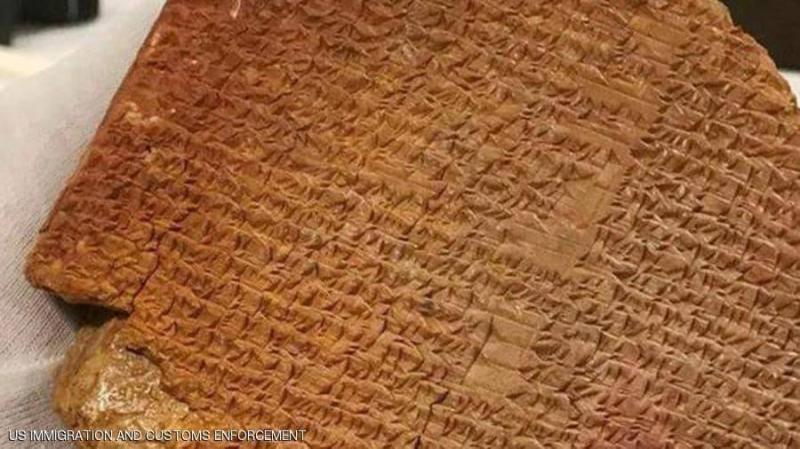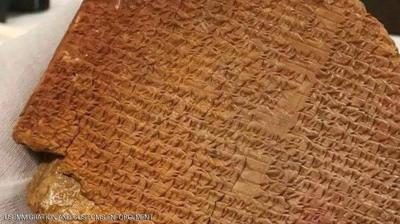UNESCO announced that Iraq will recover a 3,500-year-old cuneiform tablet containing part of the "Epic of Gilgamesh" on Thursday, after U.S. authorities determined that it was stolen from an Iraqi museum in 1991 and then smuggled to the United States years later. The ancient tablet is made of clay and written in cuneiform, featuring a portion of the "Epic of Gilgamesh," which is considered one of the oldest literary works in human history, telling the adventures of a powerful king of Mesopotamia in his quest for immortality.
According to U.S. authorities, this archaeological treasure was stolen from an Iraqi museum in 1991 during the Gulf War, then purchased in 2003 by an American art dealer from a Jordanian family residing in London, who shipped it to the United States without declaring the nature of the shipment to U.S. customs. After the tablet arrived in the United States, the dealer sold it in 2007 to other traders for $50,000 using forged provenance documents.
In 2014, the Green family, owners of the "Hobby Lobby" craft store chain and known for their Christian activities, bought the tablet for $1.67 million with the intention of displaying it in the Museum of the Bible in Washington. However, in 2017, a museum curator expressed concerns about the tablet's origin after discovering that the documents presented during the purchase were incomplete. In September 2019, U.S. authorities confiscated the artifact until a federal judge approved its return to Iraq in late July.
Despite its small size, this archaeological tablet holds immense value. On Monday, UNESCO Director-General Audrey Azoulay, who will attend the handover ceremony in Washington, stated that returning this cultural treasure to its rightful owners represents "a significant victory against those who distort heritage." She added that recovering this artifact will allow "the Iraqi people to reconnect with a chapter of their history." In July, the United States returned 17,000 artifacts to Iraq, most dating back four thousand years, particularly relating to the Sumerian civilization, one of the oldest civilizations in Mesopotamia. Iraqi archaeological treasures have suffered from neglect, destruction, and looting during the wars that have afflicted the country in recent decades, especially in the aftermath of the U.S. invasion in 2003.




